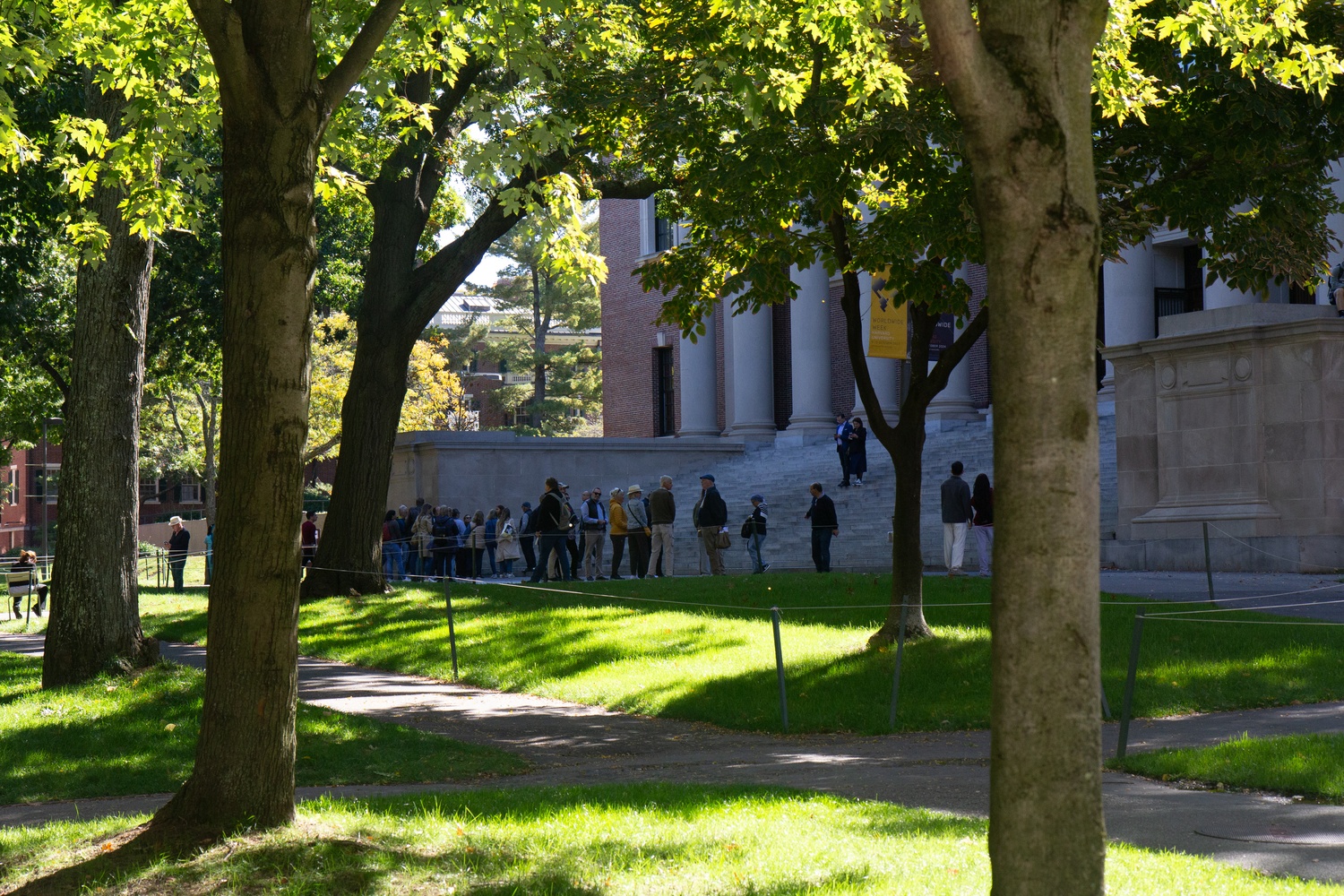
News
News Flash: Memory Shop and Anime Zakka to Open in Harvard Square

News
Harvard Researchers Develop AI-Driven Framework To Study Social Interactions, A Step Forward for Autism Research

News
Harvard Innovation Labs Announces 25 President’s Innovation Challenge Finalists

News
Graduate Student Council To Vote on Meeting Attendance Policy

News
Pop Hits and Politics: At Yardfest, Students Dance to Bedingfield and a Student Band Condemns Trump
Harvard PBK Piloting Changes to Election Process During 2024-25 Academic Year

Harvard’s Phi Beta Kappa chapter will not require students to submit applications for its Junior 24 and Senior 48 classes during the 2024-25 academic year, the chapter announced on its website.
The decision to eliminate applications is part of a series of changes to PBK’s election procedures that the chapter is piloting this academic year. Harvard’s PBK chapter also eliminated quotas on the number of students who are eligible for election from each academic division.
According to the PBK’s website, these changes were implemented “to increase the fairness and equity of the election process.”
PBK Alpha Iota of Massachusetts President Karen L. Thornber wrote in a statement that the changes were “proposed by the Chapter Officers, in consultation with colleagues in the Office of Undergraduate Education.”
“Every year there were some eligible students who did not submit applications and so were not considered for election,” wrote Thornber, a professor of East Asian Languages and Civilizations. “By removing the barrier of the application, we intend for the election process to allow for a wider array of students to be considered for election.”
Previously, the application required students to submit a written statement with short answers and provide a letter of recommendation from a faculty member.
Instead, students who have earned the highest GPA within three academic divisions — Humanities, Social Sciences, and Natural Sciences — as well as those nominated by either their concentration’s director of undergraduate studies or their resident dean will be automatically considered by the committee.
The number of eligible candidates from each academic area will be proportionate to the number of students in each class concentrating in that division.
These changes update the Junior 24 and Senior 48 selection process to be in line with that of the “Final Seniors,” about 96 members of the graduating class who are elected shortly before Commencement in May.
After this year with the piloted changes, PBK’s Massachusetts chapter will vote in May 2025 during its annual meeting to decide whether to permanently keep the updated election process.
Thornber added that the PBK has not yet received student feedback on the pilot program.
Despite the establishment of the pilot program, the process for how students are nominated and evaluated by the election committee remains unchanged, according to Thornber.
Want to keep up with breaking news? Subscribe to our email newsletter.
From Our Advertisers

Over 300+ courses at prestigious colleges and universities in the US and UK are at your disposal.

Where you should have gotten your protein since 1998.

Serve as a proctor for Harvard Summer School (HSS) students, either in the Secondary School Program (SSP), General Program (GP), or Pre-College Program.

With an increasingly competitive Law School admissions process, it's important to understand what makes an applicant stand out.

Welcome to your one-stop gifting destination for men and women—it's like your neighborhood holiday shop, but way cooler.

HUSL seeks to create and empower a community of students who are seeking pathways into the Sports Business Industry.
